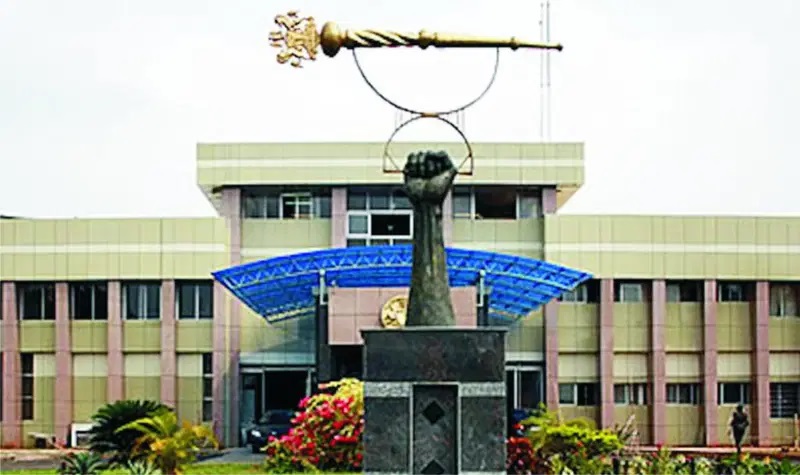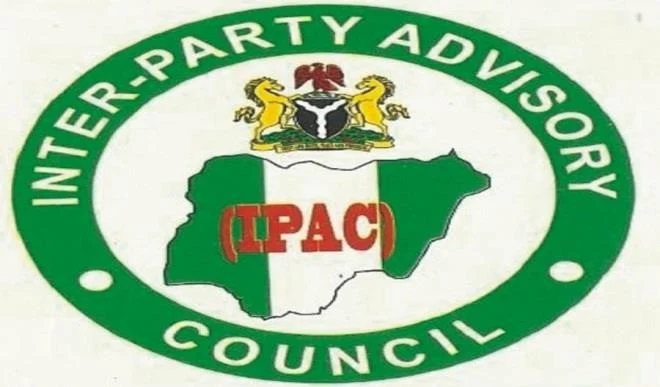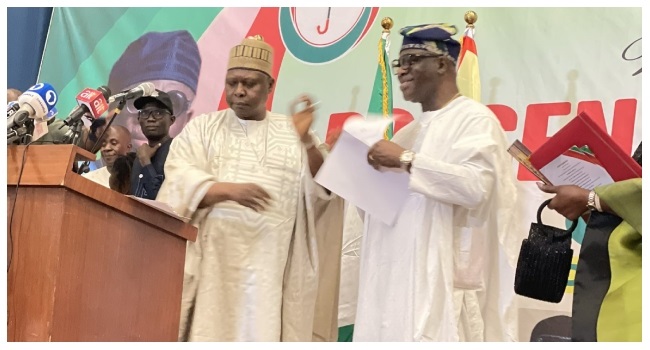The Minister of Communications, Innovation and Digital Economy, Mr. Bosun Tijani, says Nigeria’s digital economy sector is projected to contribute 21 per cent to the country’s Gross Domestic Product (GDP) by 2027.
Tijani disclosed this on Monday at a one-day public hearing on the National Digital Economy and E-Governance Bill 2025, organised by the Senate Committee on ICT and Cybersecurity and the House of Representatives Committee on Communication and ICT.
He said the sector had contributed about 16 per cent to the GDP and now accounts for 19 per cent, adding that the Federal Government under President Bola Tinubu is targeting a $1 trillion economy.
“This bill will unlock the private sector’s potential to achieve that goal. Our government is committed not to quick fixes, but deep and structural investments — building foundational digital infrastructure and progressive policies that will open new opportunities nationwide,” Tijani said.
The minister said the government, with the support of the National Assembly, was driving the deployment of 90,000 kilometres of fibre-optic network to connect all geo-political zones, states, and local governments with high-speed internet access.
He added that plans were underway to deploy 4,000 new communication towers to connect over 20 million unserved Nigerians in remote communities.
Tijani said the proposed legislation provides for the establishment of a national data exchange system to enable seamless information sharing among ministries, departments, and agencies (MDAs), as well as between government and the private sector.
He noted that the bill also creates a framework for Artificial Intelligence (AI) adoption, which would enhance national productivity and global competitiveness across key sectors.
“The generation that liberalised our telecommunications sector in 1999 laid the foundation for today’s growth. Now, we take the next bold step to expand our economy through technology and innovation,” he said.
Tijani commended the National Assembly for its “outstanding work” on the bill, describing it as the first of its kind on the African continent and a clear demonstration of Nigeria’s leadership role in advancing technology across Africa.
“As a nation representing nearly 20 per cent of the world’s black population, Nigeria carries a responsibility to lead,” he said.
Chairman of the Senate Committee on ICT and Cybersecurity, Sen. Shuaib Afolabi, allayed fears that the bill would override the powers of existing regulatory agencies, explaining that there was no overlap with existing laws.
He said the bill seeks to provide regulatory clarity for electronic transactions, mandate digitalisation of government operations, and harmonise ICT initiatives across ministries.
“When agencies digitise their operations, it minimises corruption and reduces the cost of governance,” Afolabi stated, adding that within 12 months of passage, the benefits would be visible nationwide.
Also speaking, Dr. Muhammad Sirajo, President of the Nigeria Computer Society (NCS), lauded the inclusive process behind the bill and urged clear delineation of agency roles in the digital economy space.
He called for the promotion of emerging technologies such as AI and blockchain, assuring that the NCS would support ethical oversight, capacity building, and professional standards to strengthen Nigeria’s digital transformation.





